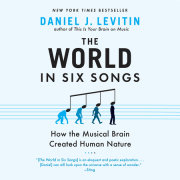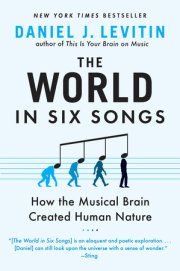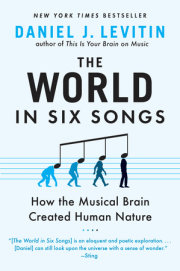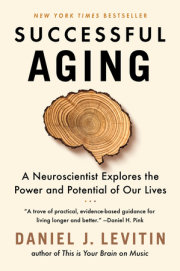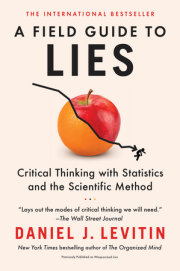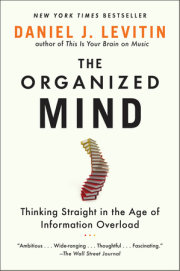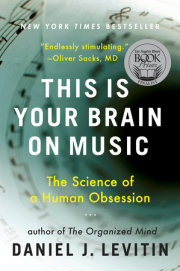The World in Six Songs
Chapter 1: Taking It from the Top or "The Hills Are Alive . . ."
Music and poetry. The two uniquely human components of the music brain.
Chapter 2: Friendship or "War (What Is It Good For)?"
Social bonding, synchronous coordinated movement, the evolution of emotional bonding, protest music for group cohesion.
Chapter 3: Joy or "Sometimes You Feel Like a Nut"
The first song. Neurochemical effects of music and music therapy.
Chapter 4: Comfort or "Before There Was Prozac, There Was You"
Why we listen to sad music when we're sad. Lullabyes and the blues. (And a short story about depressed restaurant workers pushed to the edge by a happy song.)
Chapter 5: Knowledge or "I Need to Know"
Music as an information-bearing medium. Learning, memory, and oral histories.
Chapter 6: Religion or "People Get Ready"
The role of music and ritual in creating order, reducing ambiguity, and commemorating important times and events.
Chapter 7: Love or "Bring 'Em All In"
The sense of hearing and the prefrontal cortex. Tools, musical instruments, and shaping the environment. The evolution of social structure.
Appendix
Notes
Acknowledgments
Index



